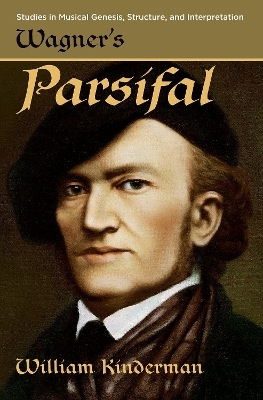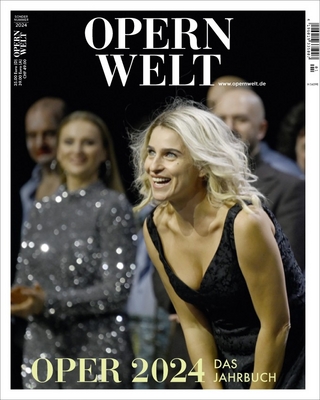
Wagner's Parsifal
Seiten
2018
Oxford University Press Inc (Verlag)
978-0-19-088568-7 (ISBN)
Oxford University Press Inc (Verlag)
978-0-19-088568-7 (ISBN)
William Kinderman's detailed study of Parsifal, described by the composer as his "last card," explores the evolution of the text and music of this inexhaustible yet highly controversial music drama across Wagner's entire career. This book offers a reassessment of the ideological and political history of Parsifal, shedding new light on the connection of Wagner's legacy to the rise of National Socialism in Germany. The compositional genesis is traced through many unfamiliar manuscript sources, revealing unsuspected models and veiled connections to Wagner's earlier works. Fresh analytic perspectives are revealed, casting the dramatic meaning of Parsifal in a new light. Much debated aspects of the work, such as Kundry's death at the conclusion, are discussed in the context of its stage history.
Path-breaking as well is Kinderman's analysis of the religious and ideological context of Parsifal. During the half-century after the composer's death, the Wagner family and the so-called Bayreuth circle sought to exploit Wagner's work for political purposes, thereby promoting racial nationalism and anti-Semitism. Hitherto unnoticed connections between Hitler and Wagner's legacy at Bayreuth are explored here, while differences between the composer's politics as an 1849 revolutionary and the later response of his family to National Socialism are weighed in a nuanced account. Kinderman combines new historical research, sensitive aesthetic criticism, and probing philosophical reflection in this most intensive examination of Wagner's culminating music drama.
Path-breaking as well is Kinderman's analysis of the religious and ideological context of Parsifal. During the half-century after the composer's death, the Wagner family and the so-called Bayreuth circle sought to exploit Wagner's work for political purposes, thereby promoting racial nationalism and anti-Semitism. Hitherto unnoticed connections between Hitler and Wagner's legacy at Bayreuth are explored here, while differences between the composer's politics as an 1849 revolutionary and the later response of his family to National Socialism are weighed in a nuanced account. Kinderman combines new historical research, sensitive aesthetic criticism, and probing philosophical reflection in this most intensive examination of Wagner's culminating music drama.
William Kinderman is Professor of Musicology at the University of Illinois, has taught extensively in Berlin and Munich, Germany, and held many seminars at the Wagner Festival at Bayreuth. He has written or edited many books, including Beethoven and Mozart's Piano Music. He is an accomplished concert pianist, and has recorded Beethoven's Diabelli Variations and last sonatas.
Contents
Prelude: Parsifal as Art and Ideology
Part 1: The Process of Composition
1. The Poem and Its Background and Evolution
2. The Genesis of the Music
Part 2: Musical Form and Dramatic Meaning
3. Wagner's Late Style
4. Grail and Anti-Grail
5. The Sense of an Ending
| Erscheinungsdatum | 06.05.2018 |
|---|---|
| Reihe/Serie | Studies in Musical Genesis, Structure, and Interpretation |
| Zusatzinfo | 17 halftone illustrations, 93 music examples |
| Verlagsort | New York |
| Sprache | englisch |
| Maße | 156 x 234 mm |
| Gewicht | 522 g |
| Themenwelt | Kunst / Musik / Theater ► Musik ► Klassik / Oper / Musical |
| Kunst / Musik / Theater ► Musik ► Musikgeschichte | |
| Kunst / Musik / Theater ► Musik ► Musiktheorie / Musiklehre | |
| ISBN-10 | 0-19-088568-8 / 0190885688 |
| ISBN-13 | 978-0-19-088568-7 / 9780190885687 |
| Zustand | Neuware |
| Informationen gemäß Produktsicherheitsverordnung (GPSR) | |
| Haben Sie eine Frage zum Produkt? |
Mehr entdecken
aus dem Bereich
aus dem Bereich
Buch | Softcover (2024)
Der Theaterverlag - Friedrich Berlin
CHF 48,95
Mozart und der Abschied von der Aufklärung
Buch | Hardcover (2024)
C.H.Beck (Verlag)
CHF 41,90


